TGIF :: Awareness #1 (of 8): My Life Is Better Clear
Weekly Drop || #10
First, a thank you!
If you are reading this, chance are you you are one of the over 1,000 people who’ve subscribed to this newsletter. I am humbled and grateful for your time and trust. Thank you. ❤️
The Eight Awarenesses, a level set.
In last week’s TGIF, Introducing the Eight Awarenesses, An Alternative to the Twelve Steps, I introduced a fresh approach to reframing our relationship with unwanted habits. This method emerged from my personal quest for a suitable framework during my own (ongoing) ClearLife journey, when traditional methods didn’t quite align with my needs.
As with all of my ClearLife initiatives, sharing The Eight Awarenesses isn’t a directive, but an invitation to reflect and perhaps experiment. There is no “right” or “wrong” way to tackle anything, especially something as personal as shifting a habit. This offering is the fruit of years of book/blog/podcast research, experimentation, and learning from others on a similar path.
Who is this for?
This approach is an option for individuals who: (1) fall somewhere in the wide spectrum between casual use on one end and addiction on the other; (2) are curious to explore if life without a habit or dimmer might improve their well-being; and (3) have experienced fleeting insights or successes but little lasting change despite repeated attempts to modify (often socially sanctioned) patterns.
If you’ve ever had thoughts like “I know I feel better when I don’t do [the thing], but what’s the big deal, everyone around me is doing it so it can’t be that bad” or “I want to change my habit, but it’s hard” this might be a fitting approach for you. I was in this amorphous place when I took my first meaningful break from drinking back in 2017.
Let’s dive in.
The First Awareness: My life is better clear, is foundational. Unless we entertain the possibility that life might improve without our dimmer of choice, the rest of the method won’t serve us. Recognizing that we’re better off without it makes altering patterns significantly more easeful.
The Eight Awarenesses, much like The Twelve Steps, build upon each other. Moving through them can be a progression, with abundant flexibility to go forward and backwards as needed to suit our unique needs. But the similarities stop there.
Unlike themes found in The Twelve Steps—such as surrender, powerlessness, giving up, self-defining as a victim, or putting ourselves in the hands of God—which didn’t resonate with my experience or needs, the first awareness isn’t about giving up. Rather, it's about empowerment and acknowledging our preference for a life devoid of energy-draining habits, be it drinking, excessive spending, smoking, overworking, or binge-watching. It's about recognizing two diverging paths—one with the habit and one without, and sensing a compelling inner desire to follow the clearer path.
This first awareness emerges from within, often in moments of solitude, following months or even years of introspection, reflection, and self-inquiry (and maybe a handful of discrete Google searches). Change then evolves from the inside out.
Timing might surprise you.
Realizing that our life is better clear doesn’t necessarily precede pausing the habit. In fact, it often comes well after we’ve taken a break. We typically need to experience life without our dimmer for a while before recognizing its appeal.
In my case, I began my no-drinking experiment in 2017 with a short-term goal: 30 days of clarity to best navigate some major life and family transitions. I didn’t think my life would be better without intoxicants, just a month, thank-you-very-much.
I felt physically and mentally refreshed after that first 30 days—like I’d discovered a superpower. Encouraged, I added a second, then a third, and then dabbled a bit during the fourth, ending it with at least one celebratory bender leaving me feeling awful. Around that time, I accepted a challenge to not drink for the entirety of 2018. While I wasn't announcing a permanent decision or asserting that my life was “better” clear, my curiosity was piqued enough to continue the experiment.
“Since I stopped drinking, I feel much better. I don’t need as much sleep, but my sleep is better. I’m more alert through the day. I’m cogent and focused at all times. I have more energy when I exercise, and it’s easier to control my diet. It’s great, and I am super mad about it.” - Marc Andreessen’s 3/1/23 Substack
In all honesty, it was nearly at the end of that year—full fifteen months after I stopped drinking—when I truly sensed that yeah, this ClearLife path is for me. I did mourn certain things I had to give up—Friday night cocktails, vacation drinks with friends, enjoying exceptional wines—so there was some sense of loss. And it wasn’t always easy; there were plenty of uncomfortable moments and adjustments to be made. Yet, but the end of 2018, I knew I wouldn’t be going back. Everything that truly mattered to me had improved, and I felt transformed— (mostly) for the better.
What was it that tipped the scale?
Many people share a lot about the physical experiences of living alcohol free (losing twenty pounds of “lingering baby weight” was a highlight for me), but the most valuable shifts were deeper than that. It was about cultivating a more authentic relationship with my sons. It was about candor with myself and others in discerning what nourished me (more intimate gatherings, early morning runs, eating well). It was about forgiving loved ones (my late mother and my ex-husband in particular). It was about putting my weapons down in the battle with my intuition, which had persistently tried to guide me, despite my resistance, for years. It was about understanding what drove me to soften the edges of my life in the first place. A year into my intoxicant-free experiment, I could clearly see the role that my dimmer of choice, “social” drinking, had obstructed so much rich, delicious goodness.
So, you’re sober.
I don’t like the label “sober.” Why does a decision to refrain from something require an identity label? Further, I bristled when anyone suggested I might have been an “addict” or needed to be “in recovery” (the most common reaction I heard when I told people I’d stopped was “Oh, I didn’t know you had a problem”). I spilled over with judgments during this period. Those words are for people with a real issue, people who are victims of something stronger than them. I’m not proud of my early judgments, but the silver lining is that my irritation fueled my interest in seeking new terminology and a fresh approach that better reflected my experience.
In the first half of 2018, on a whim, I started my clearlifejourney IG, standing in the kitchen of my tiny cottage rental. I wanted a space to share what felt like my own unique unfolding journey, different than the threads I was observing around me. And as I explored this new approach, I found likeminded people with parallel inclinations. I care less about labels these days, but in hindsight, the experience of protesting them served its purpose.
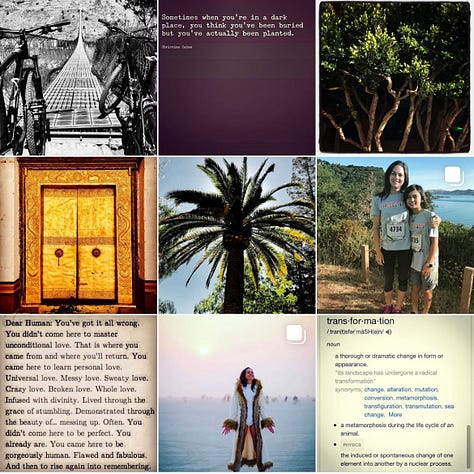

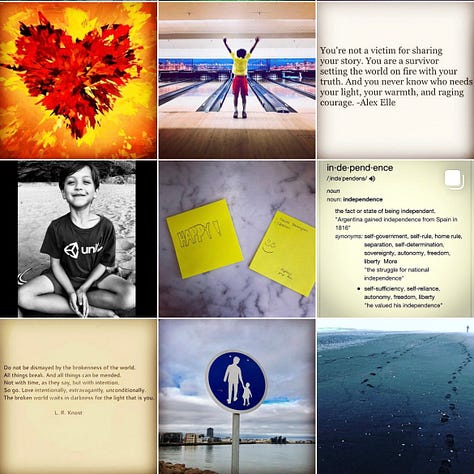
Practices to support The First Awareness: My Life is Better Clear.
I am a doer. I favor action over ideas, steps over plans, movement over stillness (though I’m trying to make more time for pauses... a topic for another post). For each of the awarenesses I will offer at least one practice, something that we can do in applying it to our day to day lives. I have four for this one:
Take a break. I hear from countless people (and can confirm with my own experience) that the best way to explore this First Awareness is to pause your habit of choice for a period. Thirty days is a good start, as demonstrated by the popularity of Dry January for booze. When we take a break from anything, we have an opportunity to self-observe, experience our discomfort, cravings, reflexes, and simply notice what arises. With these insights, we're better equipped to further examine our relationship with a habit (or not).
Disrupt your routine. Always have a drink while cooking dinner? Cook dinner earlier in the day when you’re less likely to have alcohol and skip that hour of temptation. Go out to the bar with friends on Friday night? Make different plans that don’t revolve around alcohol and don’t drink. Smoke pot and watch an hour of Netflix before bed? Take a nighttime walk around the neighborhood instead. Then just notice what comes up.
Be kind with yourself. If we’ve been using something to dim a feeling, soften a pain, avoid a truth (we’ll get to this in Awareness #4), pausing the dimmer of choice means those discomforts come up, often in intense ways. It’s important to go easy on ourselves as this happens, allow space for whatever we’re processing with compassion, and seek out help when we need or want it.
Leverage your ambition. Want to be better at something? Consider whether you’ll improve if you pause a limiting habit. There is a certain point for many people where their craft, relationship, spiritual practice, fitness, profession, parenting—or any of the many things we care about hit a plateau of sorts. I’ve seen and heard stories about this from authors, spiritual teachers, actors, athletes, doctors, entrepreneurs, parents, school teachers, designers, and a broad spectrum of professionals—peeling away a habit supported leveling up.
I had really gotten serious into meditating, and I noticed I was getting so much from meditating, but it felt like there was a bit of a ceiling there, because I was meditating and consuming at the same time, so I [decided to] commit to this meditation experiment, and let me see what would happen if I do this cultivation, this inner cultivation, without anything that actually makes me feel heavy. The results were massive. Yung Pueblo in Ruby Warrington’s Sober Curious Podcast, Episode 61
About that pause (Practice #1), it’s not about proving to ourselves (or anyone else) we can.
I’ve heard some people say that their primary motivator in taking a break from something addictive is to prove they can. “If I can stop for an extended period, then I know don’t have a problem.”
This is a perfectly acceptable way to assess our relationship with something. We like the assurance that we are in control. There is something liberating about knowing we can stop if we want to. It can feel like a permission slip to continue the habit. I get it, but this is not what ClearLife or the awareness about clarity is all about.
ClearLife is about choosing to live without the dimmer because life is better without it, not because we have to. The Eight Awarenesses are relevant when we decide—regardless of whether we’re addicted or not—that we want to reframe our relationship with something that stands between us and a better life, regardless of whether it’s easy.
Hey, life may not be better clear.
ClearLife isn’t for everyone. It can be inconvenient, uncomfortable, awkward, and even a bit boring (though I think the boring part is short-lived because life becomes more vibrant when we are clear—in all areas from the office to the bedroom 🔥). We each get to make our own choices about what works for us and go from there.
Timing isn’t everything.
It’s never too early or too late to explore changes. I know people in their teens and people in their eighties who are settling into this First Awareness and letting changes gradually unfold from this place. There is no “right” way to navigate. When the desire to change emerges from within, we simply have the opportunity to follow it, or not.
It is never too late to turn on the light. Your ability to break an unhealthy habit or turn off an old tape doesn't depend on how long it has been running; a shift in perspective doesn't depend on how long you've held on to the old view. When you flip the switch in that attic, it doesn't matter whether its been dark for ten minutes, ten years or ten decades. The light still illuminates the room and banishes the murkiness, letting you see the things you couldn't see before. It’s never too late to take a moment to look.
—Sharon Salzberg
Up Next: The Second Awareness: I choose what I consume.
There is wine on the shelf, beer in our refrigerator, and a bottle of vodka in our freezer, yet I haven’t had any alcohol for years (and no longer desire it). Next week I’ll share a bit about The Second Awareness: “Choice: I choose what I consume.” Because ClearLife is all about choices, every hour of every day.
What will you choose between now and then?
Be well. ❤️
Miscellaneous…
Enjoying: Califia Unsweetened Better Half “a plant-based 1-to-1 swap for dairy half-and-half with zero sugar” with my morning coffee as I continue to dial back dairy and sugar. So good… thank you for the tip, Erica! ❤️
Attempting: Deep rest. Some dear people in my life, particularly my Aunt Judy and Lama Tsultrim (both amazing powerhouse elder women) are reminding me that I’ve been through a lot health-wise and still need some rest. It’s not really my natural way. Who knew it would be so hard to do a little less?
Reflecting on: What made my recent birthday so special. I’ll share what I sent to a few friends who helped me feel celebrated: “It turns out I am fluid and skilled in celebrating and honoring others, but when it comes to me, I'm a bit uncomfortable. So much of this last year+ has been learning how to let love in. How to receive. How to allow, not push or drive. Can any of you relate?
Inviting: Anyone so moved to please share your thoughts on this First Awareness in the comments. If you’d rather share anonymously, you can email me at: cecilydeanemak@gmail.com.



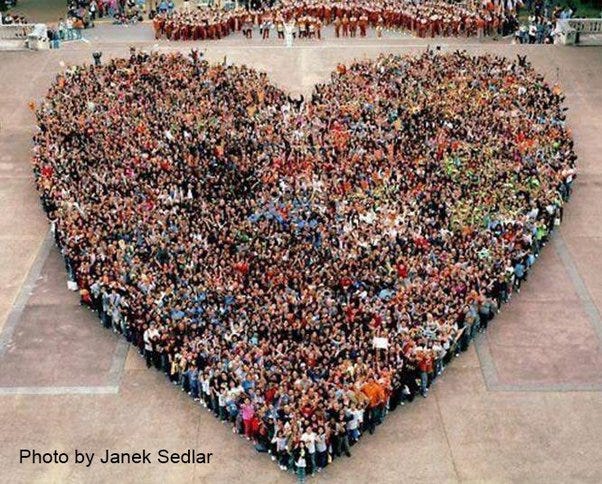
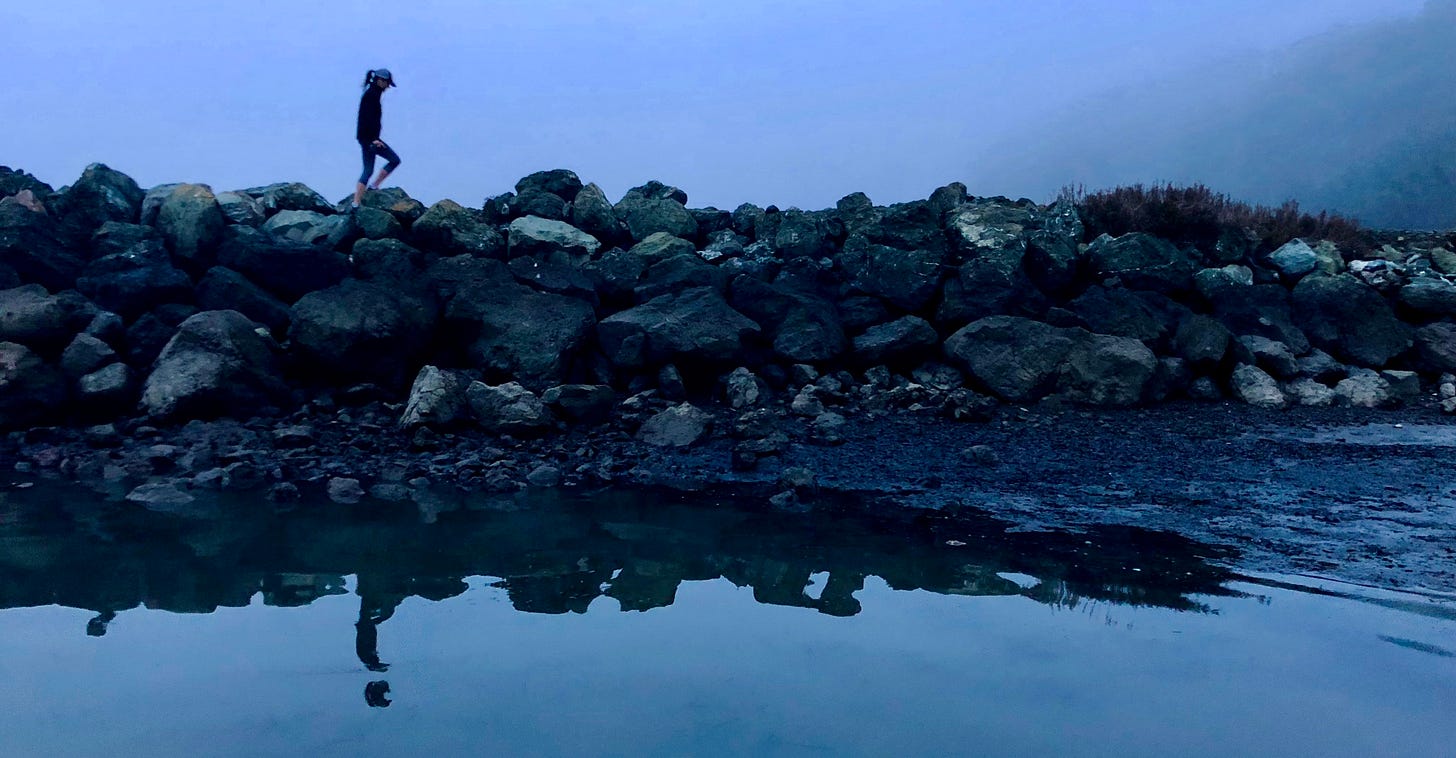
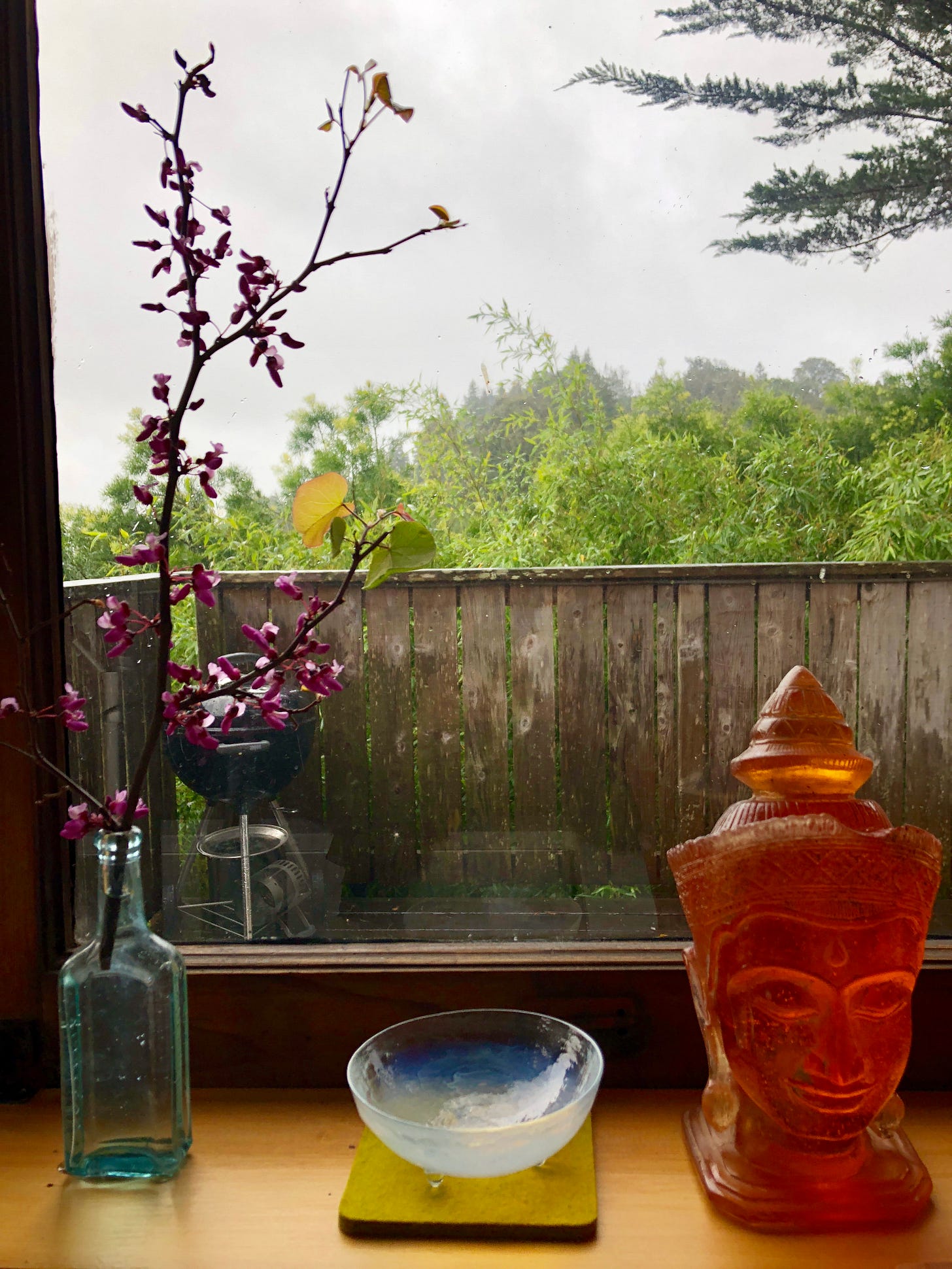
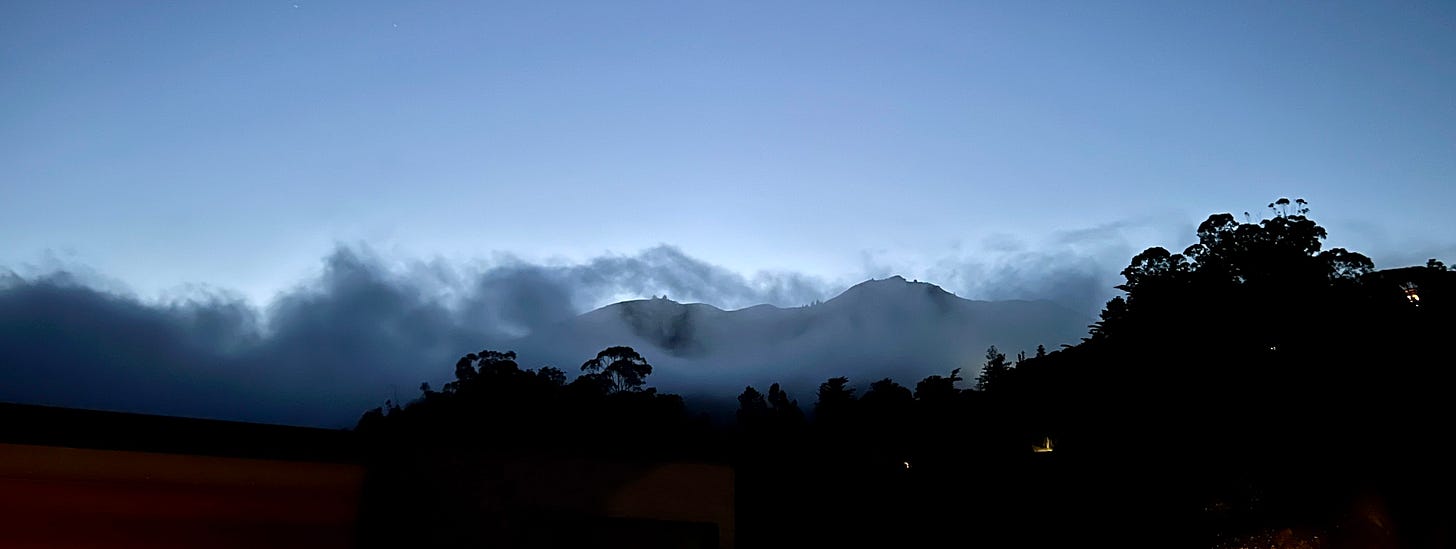
This is really fascinating. I’ve been thinking a lot about my eating (maybe even go as far to say binge eating) when I’m struggling emotionally (depressed, low, sad, hopeless). Wondering if this approach can be applied to this? Thanks for the inspiration ❤️
Living Clear. Wow. This resonates with me in a way nothing has before on my love-hate relationship journey with alcohol.